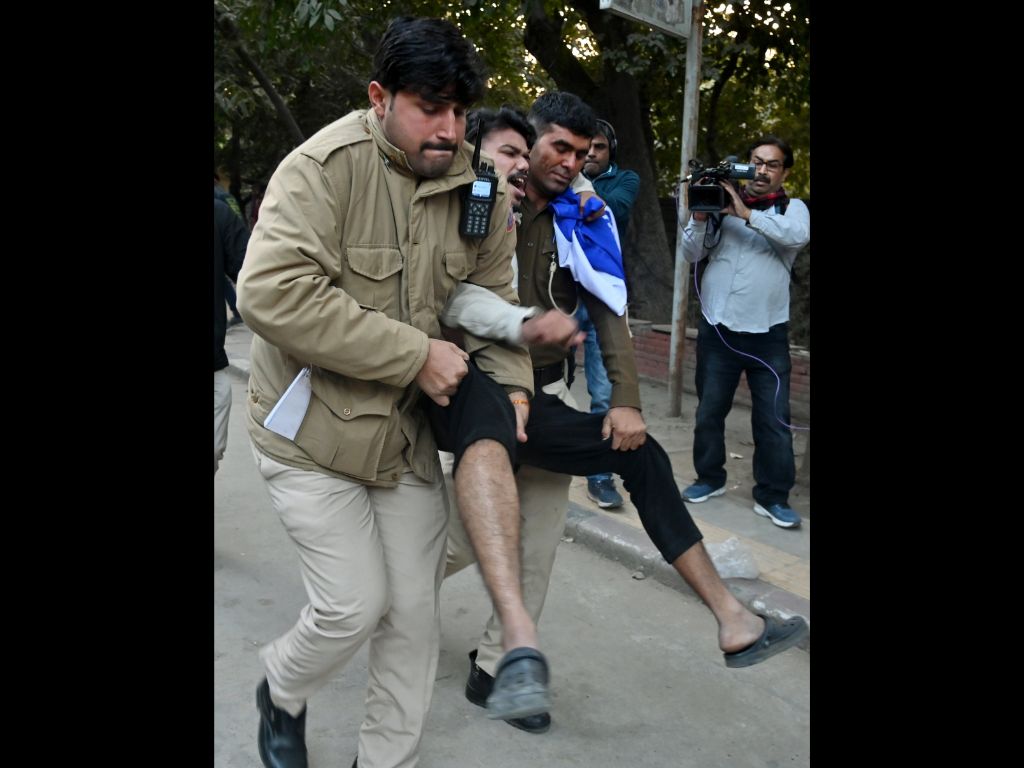- Tuesday, April 16, 2024

By: Shubham Ghosh
The row over the BBC’s controversial documentary on Indian prime minister Narendra Modi refuses to die down with the country’s student community taking a strong stand in favour of screening the same despite the government imposing restrictions.
On Friday (27) evening, the arts faculty campus at the Delhi University (DU) in the national capital witnessed chaotic scenes as students, who sought to screen the documentary ‘India: The Modi Question’, were dragged away by police. The latest development happened just a few days after similar scenes unfolded at Jawaharlal Nehru University, also in New Delhi.
Student activists alleged that the law-keepers acted with force even though the students planned for a peaceful screening of the documentary on Modi and his ruling Bharatiya Janata Party’s (BJP) alleged communal politics. They also alleged that “Sanghi goons” — targeting musclemen from the Hindu right-wing Rashtriya Swayamsevak Sangh or the ideological mentor of the BJP — attacked those who gathered to watch the series.
Police sources said 24 students were detained from the campus and that the situation was back to normal later.
University authorities said no permission was sought for the documentary’s public screening and there were also orders from the district administration against mass gathering. Rajni Abbi, DU’s chief proctor, saw no wrong with the police action, according to an NDTV report.
“Yes, students have been detained. Have they taken permission? When police have imposed Section 144, why have they collected?” Abbi, who gave a call to the police, said.
She also alleged that the students were “not even interested” in showing the documentary but only wanted “disruptive things.”
The two-part series, which references the 2002 riots in the western Indian state of Gujarat and recent incidents of communal violence, has been termed by the Modi government as false and motivated propaganda. Modi was the chief minister of the state when the riots broke out.
The government has also used emergency powers to force social media outlets such as YouTube and Twitter to take down posts and materials related to it.
Ahead of the screening which was planned for 5.30 pm local time, students — led by those belonging to Left parties and other Opposition parties — gathered at DU arts faculty area and protested imposition of Section 144 in the area.
A student’s clash erupted soon after as those belonging to right-wing groups allegedly came to protest against the event.
Those in favour of the screening raised “Delhi Police, go back” slogans at which the law-keepers detained some people who were allegedly “not students, but anti-social elements”.
“We were about to start the screening when Sanghi goons attacked us and started dragging those gathered for it. Police closed the gates and did not allow people to enter for the event,” a student, who had come from the DU-affiliated Hindu College to watch the documentary, was quoted as saying by NDTV.
Abbi said holding a mass screening was the point of contention.
“They can watch it at their homes; who’s stopping them?” she said, adding that she suspected they were outsiders.
About police violently dragging students, she said, “Why are they here, first of all? [The screening] is not allowed here.”
Attempts to screen the controversial documentary have been made at various universities across India, including in Chandigarh, Kolkata, and Thiruvananthapuram.
Opposition voices have slammed the Modi government accusing it of imposing censorship.
The BBC has called the series a “rigorously researched” piece of journalism that aims to highlight key issues.
![]()